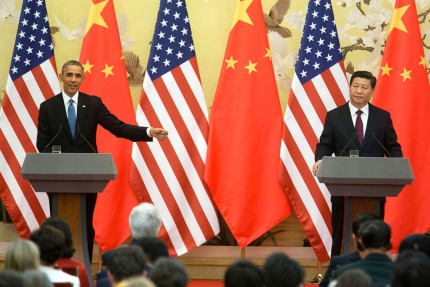The White House
Office of the Press Secretary
FACT SHEET: U.S. Assistance to Burma
U.S. assistance to Burma reflects the U.S. government’s goal of supporting Burma’s democratic and economic transition. Since 2012, the U.S. government has provided over $225 million in assistance to Burma (FY 2012-2013). In FY 2014, the United States provided over $150 million in additional assistance.
Assistance is targeted at five key goals:
National Reconciliation: U.S. assistance builds networks of cooperation and understanding within Burma’s diverse citizenry, and strengthens processes for peace and national reconciliation.
- U.S.-funded programs have increase the conflict-mitigation capacity of 35 local partners, ensuring their programs “do no harm” and reduce conflict in their communities.
- The Embassy’s Small Grants Program funds small-scale projects in ethnic states across the country to bolster civil society’s capacity and development, including women’s engagement in the peace and reconciliation processes, and promoting trust between parties in conflict.
Democratic Institutions: U.S. assistance builds the capacity of democratic institutions and a politically-engaged civil society, promotes human rights, and strengthens rule of law to strengthen the people’s ability to shape Burma’s democratic reform.
- In the last year, the U.S. Government provided assistance to over 300 civil society organizations throughout the country and supported local initiatives valued at more than $10.5 million, and implemented by 90 local partners.
- U.S.-funded programs strengthen parliamentarians’ ability to perform their legislative, budgeting, and oversight functions; help political parties represent the interests of their constituents; and work to improve the transparency of electoral processes in advance of the 2015 elections.
Economic Development: The U.S. supports Burma’s ongoing economic reform efforts, and believes that responsible investment and transparent policy dialogue will encourage further change, promote inclusive economic development, and contribute to the welfare of the Burmese people.
- U.S. support will reach 350,000 farm households with new technologies, strengthen targeted value chains, and improve land tenure security for small-holder farmers.
- U.S.-funded programs target the development of small and medium-enterprises and support reforms to establish a better business and trade-enabling environment as a means to create jobs and improve conditions of employment.
- The U.S. government is supporting programs to reform Burma’s tax system, strengthen the capacity of government institutions to supervise the financial sector, and improve governance in the extractive energy sector.
- The U.S. has also partnered with the International Labor Organization, Japan, and others on an initiative to modernize Burma’s labor code, improve compliance, and foster a robust dialogue on labor issues between the government, workers’ and employers’ organizations, and civil society.
Healthy, Resilient Communities: U.S. assistance improves the lives of millions in Burma. Programs aim to assist internally displaced people (IDPs) and reduce under-five child mortality and transmission of infectious diseases.
- U.S. assistance provided clinical services to over 57,000 clients through mobile health clinics.
- U.S.-funded programs have reached over 20,000 individuals at heightened risk for HIV with outreach services, and screened more than 70,000 people for TB, treating more than 23,000.
- U.S. emergency food assistance supports 172,000 IDPs in Rakhine, Kachin and Shan states.
- Peace Corps is poised to open its first-ever program in Burma, where Volunteers will partner with Burmese counterparts to strengthen local capacity and facilitate cultural exchanges at the grassroots level, beginning with the first arrival of volunteers in late-2015.
Regional Cooperation: The U.S. government has supported Burma’s chairmanship of ASEAN in 2014 through dialogue with ASEAN-focused senior officials and training young diplomats on the principles, mechanisms, and protocols in ASEAN.

